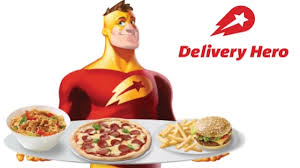Ironically, a big reason for investors’ enthusiasm is Delivery Hero’s non-German focus. A few years ago it offloaded its German businesses, Foodora, Lieferheld and Pizza.de, to Takeaway, a Dutch competitor. Since then it has eyed expansion in the Middle East and Asia. At the end of last year 50% of the company’s revenue came from the Middle East and north Africa, 30% from Asia and 12% from Europe. “It is today essentially an emerging-markets business,” says Monique Pollard of Citigroup.
諷刺的是,投資者熱情高漲的一個重要原因就是外賣超人的業務重心不在德國。幾年前,外賣超人將旗下的Foodora,Lieferheld和Pizza.de等的德國業務剝離給荷蘭競爭對手Takeaway。從那時起,外賣超人就開始著眼于在中東和亞洲擴展業務。去年年底,公司50%的收益來自于中東和北非,30%來自亞洲,12%來自歐洲。花旗集團的莫尼克·波拉德表示:“本質上來說,如今的外賣超人是一家專注于新興市場的企業”。

Many food-delivery firms do not operate their own fleets of vehicles but instead match consumers with restaurants and riders. That means they must share their cut with both restaurants and riders. “It is very hard to make a profit with the three-way-split model in Europe,” explains Andrew Gwynn of Exane BNP Paribas. But the model works in emerging markets where order sizes are large and delivery workers’ wages low.
許多送餐公司并不經營自己的車隊,而是為消費者匹配餐廳和騎手。這意味著這些公司必須將自己的利潤分給餐廳和騎手。法國巴黎銀行的安德魯·格溫作出解釋,“在歐洲,這樣的三方分割模式很難盈利。”但這種模式適用于訂單量大、騎手工資低的新興市場。
Delivery Hero could become a viable business, if it manages to keep its focus on the developing world and stay on top of the next wave of consolidation, which began with the combination of Just Eat and Takeaway, two European firms, earlier this year, and their proposed takeover of America’s Grubhub in June. At the very least it has a decent shot at staying in the DAX longer that firm it replaced. Wirecard, a payments-processor bankrupted earlier this year by a huge accounting fraud, was booted out of the index barely two years after its own ascension.
如果外賣超人能將重心放在發展中國家,并在下一波并購浪潮中處于主導地位,其業務將得以發展。今年早些時候,兩家歐洲公司JustEat和Takeaway合并,并于6月收購了美國的Grubhub,這一系列行徑揭開了并購浪潮的序幕。至少,外賣超人在DAX指數的停留時間會超過它取代的公司,還算體面。Wirecard是一家提供支付服務的企業,這家公司在今年早些時候因巨額財務造假而破產,僅上榜DAX指數指數兩年就被逐出了榜單。












